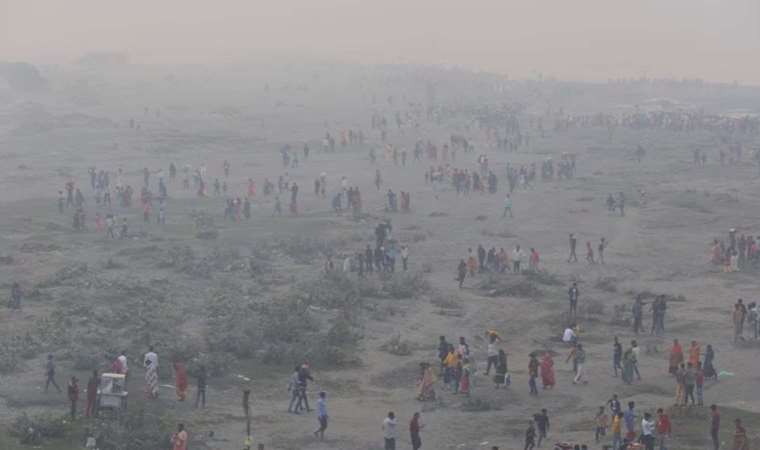The University of Chicago's Energy Policy Institute (EPIC) presented its latest Air Quality Life Index, revealing that South Asia, encompassing countries such as Bangladesh, India, Nepal, and Pakistan, is accountable for over 50% of the total global loss of life years due to pollution.
Industrial expansion and population growth have contributed to a significant deterioration in air quality across South Asia. Particulate pollution levels have surged over 50% since the beginning of the century, overshadowing even larger health threats.
According to the study, Bangladesh, recognized as the world's most polluted country, faces an average loss of 6.8 years per person, compared to 3.6 months in the United States. The research employs satellite data to calculate the effects of heightened airborne fine particles on life expectancy.
The report emphasizes that India has driven around 59% of the global escalation in pollution since 2013. Hazardous air quality further threatens lives in some of the nation's most polluted regions. The densely populated city of New Delhi, known as the world's most polluted mega-city, has witnessed an average lifespan reduction of over 10 years.
The report advocates that aligning global levels of lung-damaging airborne particles, designated as PM 2.5, with the World Health Organization's (WHO) recommendations, could potentially raise average life expectancy by 2.3 years, which equates to a collective 17.8 billion life years.
If the WHO guidelines are met, an average Pakistani resident could gain 3.9 additional years of life, while an individual in Nepal could see an extended lifespan of 4.6 years, as outlined in the report.
China has effectively reduced pollution by 42.3% between 2013 and 2021, highlighting the importance of governments providing accessible air quality data. Such data availability is instrumental in narrowing global disparities in access to pollution-fighting tools.















